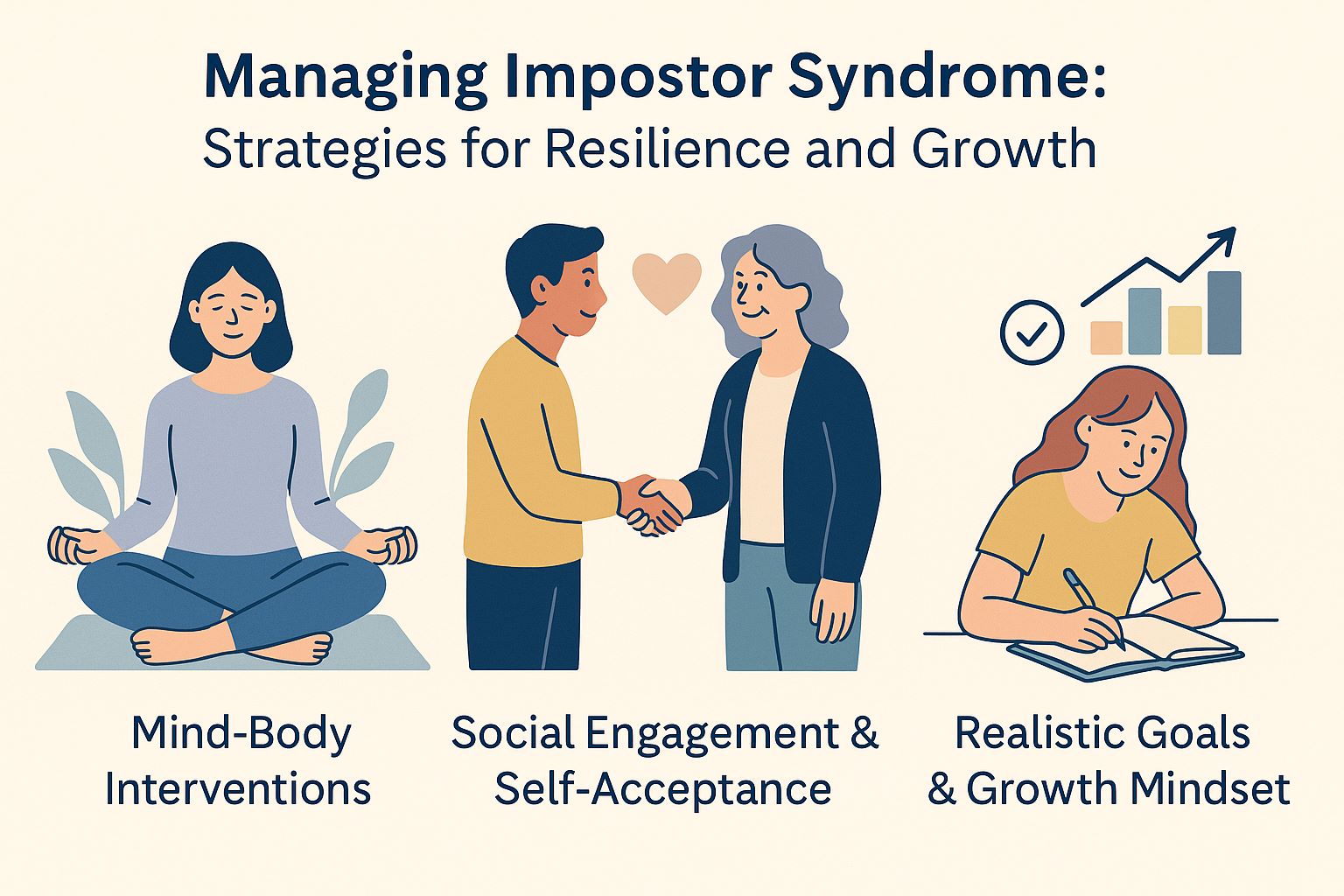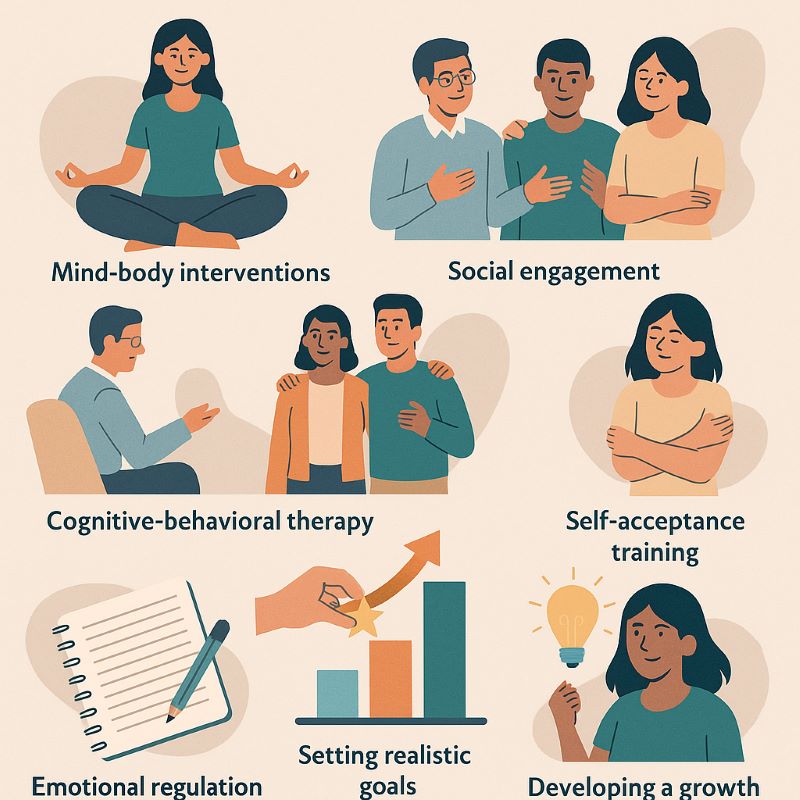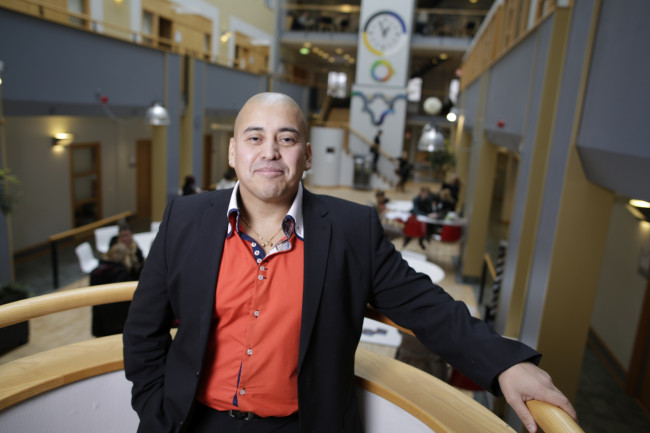Many students, even those who perform exceptionally well, experience impostor syndrome, the persistent feeling that they don’t truly deserve their success.
Blog post
The blogpost is written by
This blogpost is written together with student Paula Ospina.
Despite good grades, positive feedback, and achievements, they fear being exposed as "frauds." But where do these feelings come from? Is impostor syndrome a personality trait, a response to academic pressure, or a mix of both?

In our recent study, we explored how personality traits influence impostor syndrome and what this means for students’ well-being.
What Did We Do?
As part of a Master's thesis, we conducted a study using Cloninger’s Temperament and Character Inventory (TCI), a tool that assesses personality traits related to emotions, motivation, social behavior, and self-regulation. Our goal was to identify which personality traits make students more (or less) vulnerable to impostor syndrome. We also examined how impostor feelings impact well-being and students' intentions to continue in their academic fields.
What Did We Discover?
Our preliminary findings revealed clear connections between personality and impostor syndrome. Some traits made students more likely to experience it, while others helped protect against it.
Harm Avoidance (Worry and Fear of Failure):
- Students who are naturally anxious, overly cautious, and fear making mistakes are significantly more likely to feel like impostors.
- They often believe their success is due to luck rather than skill, leading to high stress, self-doubt, and reduced well-being.
- Because they overanalyze potential criticism, they struggle to internalize their achievements, reinforcing impostor feelings.
Low Reward Dependence (Struggle to Accept Validation):
- Students who are independent but less reliant on social approval were also more likely to feel like impostors.
- Because they don’t seek or accept external validation easily, they may dismiss positive feedback and struggle to recognize their own competence.
Low Self-Directedness (Lack of Confidence and Control):
- Students who lack self-confidence and struggle with setting and achieving meaningful goals are more prone to impostor syndrome.
- They often feel like external factors (luck, circumstances, or others' opinions) determine their success, making it harder for them to recognize their own abilities.
- This lack of autonomy and emotional regulation makes overcoming self-doubt a challenge.
Why Does This Matter?
Impostor syndrome isn’t just about self-doubt—it can lead to high stress, reduced confidence, and even dropping out of academic programs. Students who constantly feel like frauds may struggle with mental and physical health issues due to chronic anxiety and stress. Understanding that personality plays a role in impostor syndrome can help students and educators develop strategies to manage these feelings.
Moving Forward
Depending on personality traits, different strategies can help students manage impostor syndrome through personal development.
Mind-body interventions, such as mindfulness practices, can help calm the nervous system, reduce anxiety and thus increase overall well-being. Additionally cognitive-behavioral therapy (CBT) is a valuable tool in distinguishing irrational fears from helpful thoughts, again combating anxiety.

Social engagement through mentorship programs, community support groups, or volunteering can foster a greater sense of well-being and confidence. Moreover, self-acceptance training can help encourage individuals to embrace imperfections and recognize their strengths, as something separate from their achievements. Other emotional regulation techniques, such as journaling, cognitive restructuring, and gratitude exercises, also foster resilience and promote a balanced perspective.
Setting realistic goals and celebrating small achievements can boost motivation. Developing a growth mindset, learning to see failure as part of the learning process rather than a reflection of ability, can increase confidence and self-efficacy.
Selected publications and presentations of our research on personal development:
Garcia, D., Cloninger, K. M., & Cloninger, C. R. (2023). Coherence of Temperament and Character Drives Personality Change Toward Well-Being in Person-Centered Therapy. Current Opinion in Psychiatry, 36, 60-66. https://10.1097/YCO.0000000000000833.
Garcia, D., Cloninger, M. K., Lester, N., & Cloninger, C. (2020). Effects of Six Months of Well-Being Coaching and Mind-Body Interventions among Refugees in Sweden. XXXII International Congress of Psychology. Prague, Czech Republic.
Garcia, D., Cloninger, K. M., Lester, N., & Cloninger, C. R. (2019). The Future of Personality Research and Applications: Some Latest Findings. In D. Garcia, T. Archer, & R. M. Kostrzewa (Eds.), Personality and Brain Disorders: Associations and Interventions (pp. 283-297). Cham, Switzerland: Springer. https://doi.org/10.1007/978-3-319-90065-0_13.
Cloninger, K. M., Granjard, A., Lester, N., Rosenberg, P., Cloninger, C. R., & Garcia, D. (2019). A Randomized Controlled Pilot Study using Mind-Body Interventions among Refugees in Sweden. International Journal of Person Centered Medicine, 9, 19-34. https://10.5750/ijpcm.v9i3.995.
